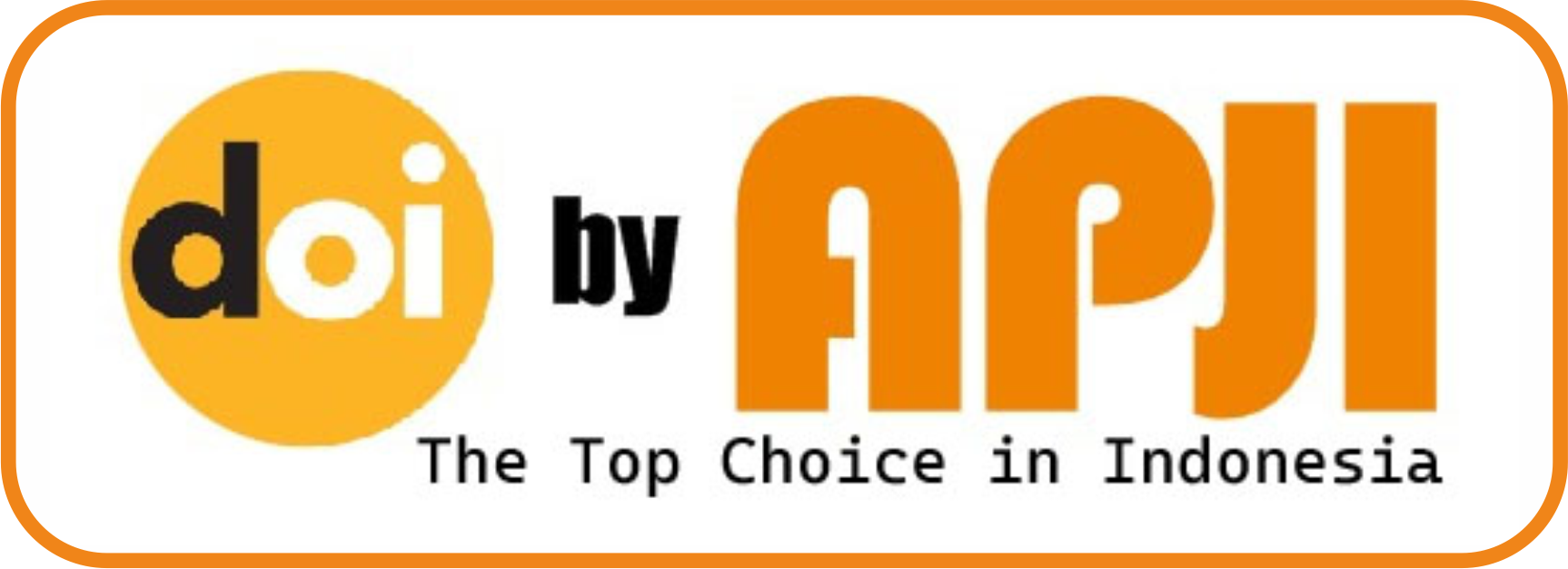E-Module Development of Physical Education Subjects for Sports and Health on Physical Fitness Materials for Class VII Junior High School Students
DOI:
https://doi.org/10.55606/ijel.v1i2.24Keywords:
E-Module, Physical Fitness Materials, PJOK SubjectsAbstract
This study aims to develop an e-module for physical education subjects, sports and health on physical fitness material for seventh grade junior high school students. The type of research is research and development with the ADDIE development model (Analysis, Define, Development, Implementation and Evaluation). The research was conducted at SMP Negeri 23 Kerinci, SMP Negeri 10 Kerinci and SMP Negeri 19 Kerinci. is a validation sheet. Data collection techniques in the form of instruments that have been validated by experts. Data analysis techniques use validation sheets. Data analysis techniques use rating scales and percentage ranges. physical fitness for class VII junior high school students is very feasible to be used as teaching material with a validation value of 92.8%, 2) e-module product for physical education subjects, sports and health on physical fitness material for class VII junior high school students which was developed effectively for junior high school students class VII with the results of the effectiveness test of 76.8 > 76.
References
Aminatun, T., Subali, B., Yuningsih, Y., Dwiyani, A., Prihartina, I., & Meliana, D. (2022). Developing Android-Based Mobile through Local Ecosystem Materials to Improve Thinking Skills of High School Students. Anatolian Journal of Education, 7(1), 73–82. https://doi.org/10.29333/aje.2022.716a
Arikunto, S. (2011). Dasar-Dasar Evaluasi Pendidikan.Bandung: Bumi Aksara.
Arkiang, F. (2021). Analisis Pembelajaran Daring Selama Pandemi Covid-19 Di Daerah 3T (Nusa Tenggara Timur). Jurnal Pendidikan, 12(1), 57–64. https://jp.ejournal.unri.ac.id/index.php/JP/article/downloadSuppFile/7917/209
Asmiyunda, A., Guspatni, G., & Azra, F. (2018). Pengembangan E-Modul Kesetimbangan Kimia Berbasis Pendekatan Saintifik untuk Kelas XI SMA/ MA. Jurnal Eksakta Pendidikan (Jep), 2(2), 155. https://doi.org/10.24036/jep/vol2-iss2/202
Astuti, N., & Riefani, M. K. (2022). Validitas Modul Elektronik “ Pembelahan Sel ” Berbasis Keterampilan Berpikir Kritis ( Validitas Modul Elektronik “ Pembelahan Sel ” Berbasis Keterampilan …..). 6.
Baety, D. N., & Munandar, D. R. (2021). Analisis Efektifitas Pembelajaran Daring Dalam Menghadapi Wabah Pandemi Covid-19. Edukatif : Jurnal Ilmu Pendidikan, 3(3), 880–989. https://edukatif.org/index.php/edukatif/article/view/476
Chankuna, D., Thanaiudompat, T., & Sujintawong, P. (2022). The Analysis of Problems and Needs of Educational Information Technology of Thailand National Sports University. Education Quarterly Reviews, 5(2). https://doi.org/10.31014/aior.1993.05.02.474
Fradila, E., Razak, A., Santosa, T. A., Arsih, F., & Chatri, M. (2021). Development Of E-Module-Based Problem Based Learning (PBL) Applications Using Sigil The Course Ecology And Environmental Education Students Master Of Biology. International Journal of Progressive Sciences and Technologies (IJPSAT, 27(2), 673–682. http://ijpsat.ijsht-journals.org
Gumara, O. H., & Wahyuri, A. S. (2022). Pengembangan E-Modul Mata Pembelajaran Pendidikan Jasmani Olahraga dan Kesehatan pada Materi Pokok Pola Hidup Sehat untuk Siswa Sekolah Menengah Pertama. Edukatif : Jurnal Ilmu Pendidikan, 4(4), 6185–6192. https://doi.org/10.31004/edukatif.v4i4.3066
Hamidi, F., Meshkat, M., Rezaee, M., & Jafari, M. (2011). Information technology in education. Procedia Computer Science, 3, 369–373. https://doi.org/10.1016/j.procs.2010.12.062
Johan, R. C., Rullyana, G., & Ardiansah, A. (2022). Hyper content e-module in information behavior course with the assistant of screencast. Journal of Education and Learning (EduLearn), 16(2), 210–218. https://doi.org/10.11591/edulearn.v16i2.20339
Marisa, U., Yulianti, & Hakim, A. R. (2020). Pengembangan E-Modul Berbasis Karakter Peduli Lingkungan di Masa Pandemi Covid-19. Seminar Nasional PGSD UNIKAMA, 4(September), 323–330.
Matsun, M., & Saputri, D. F. (2020). Pengembangan E-Modul Fisika Berbantuan Whatsapp Sebagai Alternatif Pemebalajaran Dimasa Pemdemi Covid 19. ORBITA: Jurnal Kajian, Inovasi Dan Aplikasi Pendidikan Fisika, 6(2), 213. https://doi.org/10.31764/orbita.v6i2.3130
Oktarina, K., Suhaimi, S., Santosa, T. A., & ... (2021). Meta-Analysis: The Effectiveness of Using Blended Learning on Multiple Intelligences and Student Character Education During the Covid-19 Period. … Journal of Education …, 4(3), 184–192. http://journal.ummat.ac.id/index.php/IJECA/article/view/5505%0Ahttps://journal.ummat.ac.id/index.php/IJECA/article/download/5505/pdf
Rismayanti, T. A., & Sukirwan, N. A. (2022). Pengembangan E-Modul Berbantu Kodular pada Smartphone untuk Meningkatkan Kemampuan Berpikir Kritis Matematis Siswa SMP. 06(01), 859–870.
Rizki Aryawan1, I Gde Wawan Sudatha2, A. I. W. I. Y. S. (2018). Pengembangan e-modul interaktif mata pelajaran ips di smp negeri 1 singaraja. Jurnal EDUTECH Universitas Pedidikan Ganesha, 6(2), 180–191.
Roldán-zafra, J., Perea, C., Polo-blanco, I., & Campillo, P. (2022). Design of an Interactive Module Based on the van Hiele Model : Case Study of the Pythagorean Theorem. 17(1), 1–10.
Santosa, T. A., Razak, A., Anhar, A., & Sumarmin, R. (2021). The Effectiveness of the Blended Learning Model on Student Learning Outcomes in Zoology Subjects in the Covid-19 Era. Pendidikan Biologi, 7(1), 77–83.
Santosa, T. A., & S., E. M. (2020). Analisis Masalah Pendidikan Biologi Pada Sekolah Menengah Pertama Di Era Pandemi Covid -19. Jurnal Review Pendidikan Dan Pengajaran, 3(2), 273–278. https://doi.org/10.31004/jrpp.v3i2.1278
Saraswati, S., & Linda, R. (2019). Development of Interactive E-Module Chemistry Magazine Based on Kvisoft Flipbook Maker for Thermochemistry Materials at Second Grade Senior High School. 3(October), 1–6. https://doi.org/10.17509/jsl.v3i1.18166
Sri, D., Adi, B., & Maridi, M. (2022). JPBI ( Jurnal Pendidikan Biologi Indonesia ) Developing the guided inquiry-based module on the circulatory system to improve student ’ s critical thinking skills. 8(1), 77–85.
Suarsana, I. M., & Mahayukti, G. A. (2013). Pengembangan E-Modul Berorientasi Pemecahan Masalah Untuk Meningkatkan Keterampilan Berpikir Kritis Mahasiswa. Jurnal Nasional Pendidikan Teknik Informatika (JANAPATI), 2(3), 193. https://doi.org/10.23887/janapati.v2i3.9800
Vina Serevina, Sunaryo, Raihanati, I Made Astra, I. J. S. (2018). Development of E-Module Based on Problem Based Learning (PBL) on Heat and Temperature to Improve Student’s Science Process Skill. TOJET: The Turkish Online Journal of Educational Technology –, 17(3), 26–36.
Wahyuni, D. (2020). Efektifitas e-Modul Berbasis Problem SolvingTerhadap Keterampilan Berfikir Kritis Perserta Didik. 6(2), 180–189.
Welker, K., Cox, C., Bylina, H., Baer, H., Duessel, S., & Directors, C. D. (2021). A CHRONIC CONDITION E-LEARNING MODULE FOR SCHOOL NURSES TO TRAIN AFTERSCHOOL TEACHERS AND STAFF. 12(3), 50–57.
Wulandari, A. M., & Wibowo, A. K. (2022). Android based petanque sports module electronic development. MULTILATERAL: Jurnal Pendidikan Jasmani Dan Olahraga, 21(1), 57–70.
Wulandari, F., Yogica, R., & Darussyamsu, R. (2021). Analisis Manfaat Penggunaan E-Modul Interaktif Sebagai Media Pembelajaran Jarak Jauh Di Masa Pandemi Covid-19. Khazanah Pendidikan, 15(2), 139. https://doi.org/10.30595/jkp.v15i2.10809



















